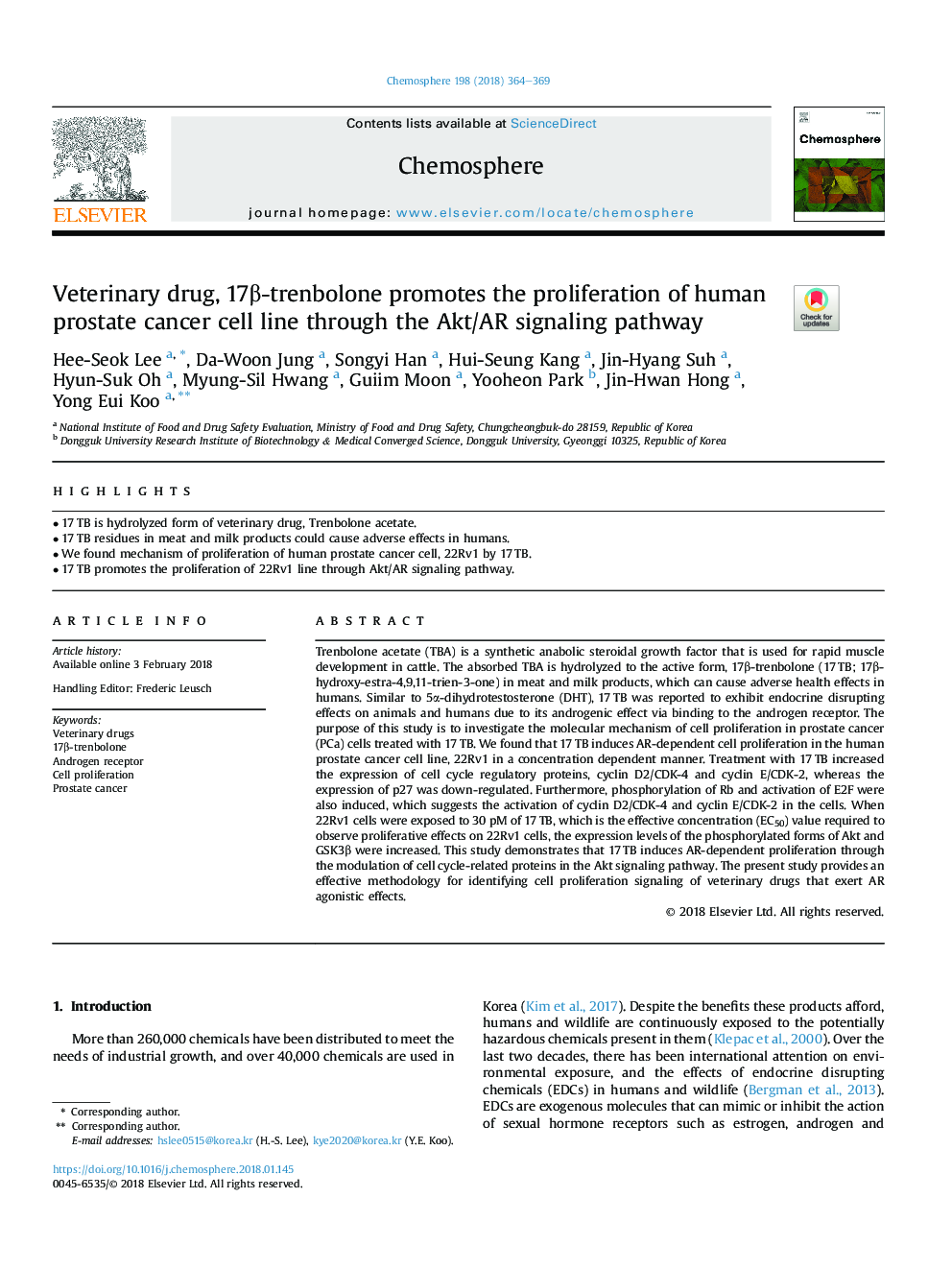| Article ID | Journal | Published Year | Pages | File Type |
|---|---|---|---|---|
| 8851899 | Chemosphere | 2018 | 6 Pages |
Abstract
Trenbolone acetate (TBA) is a synthetic anabolic steroidal growth factor that is used for rapid muscle development in cattle. The absorbed TBA is hydrolyzed to the active form, 17β-trenbolone (17â¯TB; 17β-hydroxy-estra-4,9,11-trien-3-one) in meat and milk products, which can cause adverse health effects in humans. Similar to 5α-dihydrotestosterone (DHT), 17â¯TB was reported to exhibit endocrine disrupting effects on animals and humans due to its androgenic effect via binding to the androgen receptor. The purpose of this study is to investigate the molecular mechanism of cell proliferation in prostate cancer (PCa) cells treated with 17â¯TB. We found that 17â¯TB induces AR-dependent cell proliferation in the human prostate cancer cell line, 22Rv1 in a concentration dependent manner. Treatment with 17â¯TB increased the expression of cell cycle regulatory proteins, cyclin D2/CDK-4 and cyclin E/CDK-2, whereas the expression of p27 was down-regulated. Furthermore, phosphorylation of Rb and activation of E2F were also induced, which suggests the activation of cyclin D2/CDK-4 and cyclin E/CDK-2 in the cells. When 22Rv1 cells were exposed to 30 pM of 17â¯TB, which is the effective concentration (EC50) value required to observe proliferative effects on 22Rv1 cells, the expression levels of the phosphorylated forms of Akt and GSK3β were increased. This study demonstrates that 17â¯TB induces AR-dependent proliferation through the modulation of cell cycle-related proteins in the Akt signaling pathway. The present study provides an effective methodology for identifying cell proliferation signaling of veterinary drugs that exert AR agonistic effects.
Related Topics
Life Sciences
Environmental Science
Environmental Chemistry
Authors
Hee-Seok Lee, Da-Woon Jung, Songyi Han, Hui-Seung Kang, Jin-Hyang Suh, Hyun-Suk Oh, Myung-Sil Hwang, Guiim Moon, Yooheon Park, Jin-Hwan Hong, Yong Eui Koo,
